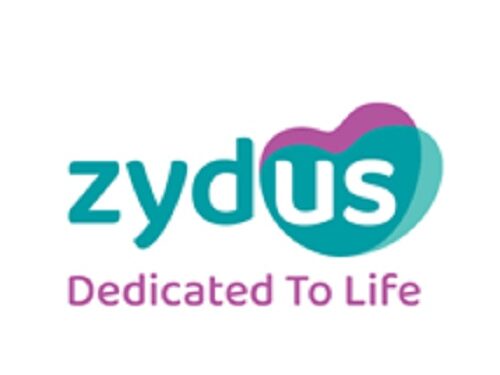PENNINGTON, N.J., AHMEDABAD, INDIA, – August 29th, 2025 – Zydus Therapeutics, a wholly owned subsidiary of Zydus Lifesciences Ltd., a global innovation led healthcare company, today announced positive topline results from the pivotal EPICS-III Phase 2(b)/3 clinical trial. In this trial, the safety and efficacy of Saroglitazar, an investigational alpha/gamma Peroxisome Proliferator-Activated Receptor (PPAR) agonist, was evaluated for the treatment of adult patients with Primary Biliary Cholangitis (PBC) who had an inadequate response or intolerance to ursodeoxycholic acid (UDCA), the current standard-of-care.
Speaking on the development, Chairman of Zydus Lifesciences, Mr. Pankaj Patel said “The EPICS-III results reinforce our commitment to advancing novel treatments for chronic liver disease — an area of high unmet medical need and growing global impact. Saroglitazar is the first PPAR alpha/gamma agonist to demonstrate positive Phase 3 data in patients with PBC and has the potential to bring real value to both patients and their healthcare providers who may need more options. As we look ahead, we’re excited about the potential of this investigational treatment and intend to discuss these results with regulatory agencies and plan to move forward with a regulatory submission to the U.S. Food and Drug Administration in the first quarter of 2026.”
- Trial met the primary endpoint, with a statistically significant treatment difference in the percentage of patients achieving a clinically meaningful biochemical response with Saroglitazar compared to placebo.
- Saroglitazar was generally well tolerated, with overall adverse events generally balanced between Saroglitazar-treated and placebo-treated patients.
- Zydus Therapeutics, the US-based innovation-focused specialty arm of Zydus Lifesciences Ltd, intends to submit a U.S. regulatory application for Saroglitazar in the first quarter of 2026.
The trial met its primary composite endpoint, with a treatment difference in achieving a biochemical response of 48.5%, favoring Saroglitazar 1mg compared to those treated with placebo (P<0.001). Biochemical response was defined as alkaline phosphatase (ALP) <1.67x upper limit of normal (ULN), a ≥15% decrease of ALP relative to baseline, and total bilirubin ≤ ULN or direct bilirubin ≤ULN in patients with known Gilbert’s syndrome at 52 weeks. ALP and bilirubin are important predictors of PBC disease progression. The trial also met its key secondary endpoint, the proportion of subjects with complete normalization of ALP defined as ALP ≤ULN at 52 weeks. In the trial, Saroglitazar 1mg was generally well tolerated, with adverse events generally balanced between Saroglitazar 1mg-treated and placebo-treated patient.
“In clinical practice, we often see patients who continue to struggle despite being on standard
therapy,” said Raj Vuppalanchi, MD, Professor of Medicine at Indiana University School of Medicine and Global Principal Investigator for the EPICS-III study. “Expanding our treatment options with new therapies could significantly change how we personalize care for individuals with PBC who haven’t responded to first-line treatment. We are thankful to the patients, their families, and the investigators whose participation made this study possible.”
The full data from the EPICS-III trial will be presented at a future scientific congress.
About Primary Biliary Cholangitis (PBC):
Primary Biliary Cholangitis (PBC) is a rare, progressive autoimmune disease which gradually destroys the bile ducts, resulting in an accumulation of bile in the liver, which can result in fibrosis, cirrhosis, the need for liver transplantation or death. PBC is characterized by increases in biochemical markers, especially alkaline phosphatase (ALP) and bilirubin. Clinical symptoms include pruritus (itching) and fatigue, both of which can be severe.
About the EPICS-III Trial:
EPICS-III (NCT05133336) is a multicenter, randomized, double-blind, placebo controlled, seamless Phase 2b/3 trial evaluating the efficacy and safety of Saroglitazar in patients with PBC who were resistant or intolerant to ursodeoxycholic acid (UDCA). After optimal dose selection, the Phase 3 trial randomized 149 patients in a 2:1 ratio of Saroglitazar 1 mg or placebo.
About Saroglitazar:
Saroglitazar is a novel Peroxisome Proliferator-Activated Receptor (PPAR) alpha / gamma agonist, currently under investigation as a treatment for patients with PBC. Its distinct biological profile targets both bile acid toxicity and liver inflammation. Saroglitazar has received Orphan Drug Designation and Fast Track Designation from the U.S. Food and Drug Administration for the treatment of PBC
About Zydus Therapeutics:
Zydus Therapeutics is a clinical-stage, specialty-focused biopharmaceutical company dedicated to developing transformative treatments for rare and serious liver diseases, including Primary Biliary Cholangitis (PBC) and Non-Alcoholic Steatohepatitis (NASH). As a U.S. subsidiary of Zydus Lifesciences, Zydus Therapeutics leverages a global network of over 1,300 researchers and more than 30 manufacturing sites to advance innovative therapies. Headquartered in Pennington, New Jersey, Zydus Therapeutics is committed to empowering patients with the freedom to live healthier, more fulfilling lives. For more information, visit www.zydustx.com.
About Zydus Lifesciences:
Zydus Lifesciences Ltd., with an overarching purpose of empowering people with freedom to live healthier and more fulfilled lives, is an innovative, global life sciences company that discovers, develops, manufactures, and markets a broad range of healthcare therapies. The group employs over 28,000 people worldwide, including 1,500 scientists engaged in R & D, and is driven by its mission to unlock new possibilities in life sciences through quality healthcare solutions that impact lives. The group aspires to transform lives through path-breaking discoveries.
Forward-Looking Statements:
This press release contains forward-looking statements as defined in the Private Securities Litigation Reform Act of 1995, as amended, including statements about future regulatory plans and the potential of saroglitazar. These statements are based on current expectations and are subject to risks and uncertainties. Actual results could differ. Zydus Therapeutics does not commit to updating any of these statements unless required by law.





































